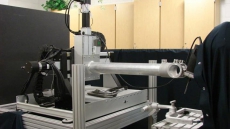Men, take note! Irregular working hours can dampen your sex drive and lessen your chances of fathering children.
Sleep loss has always been linked to various disorders, some of them being obesity and heart disease.
An average human being needs anywhere between seven to eight hours of sleep every night. In today's times, erratic working hours, unreasonable deadlines, and other factors have taken a toll on the amount of sleep and rest that a person gets.
According to Dr. Hrishikesh D Pai, Director IVF & Infertility at Fortis La Femme Hospital, Delhi & Secretary General of the Federation of Obstetrics and Gynaecological Societies of India, men who do shift work are the worst victims.
The working pattern can affect the health of employees and impact their sleep pattern, meal times, and the ability to exercise.
Apart from this, lack of sleep is also associated with urinary problems and erectile dysfunction. The reason for this is that an erratic schedule can lower testosterone levels in men.
Testosterone is a hormone which helps fuel a man's sex drive. A reduction in the level of this hormone can result in the production of poor-quality semen, thereby making it difficult for men to help conceive babies.

Male fertility rates have already plummeted in the recent years due to poor diet and lifestyle as also 'gender-bending' chemicals present in the environment.
Too much or too little sleep can impact the body's circadian rhythm. The circadian rhythm controls the production of the sleep hormone melatonin and cortisol, which is a stress hormone.
Men who do shift work tend to constantly shift their circadian rhythm which results in the same type of 'jet lag' that one associates with traveling to and from different time zones.
The fluctuation in hormone levels can lead to a change in the expression of genes essential for producing sperm. Not just this, irregular sleep also increases the risk of insomnia or excessive sleepiness and causes a reduction in the total sleep time due to work schedule.
A lifestyle that involves irregular sleep patterns also contributes to blockages or obstructions in the tubes that take sperms away from the testes to the penis. This results in complete lack of sperm in the ejaculated semen.
HERE ARE SOME TIPS FOR THOSE WORKING IN NIGHT SHIFTS
•Try to avoid working several night shifts in a row
•Avoid frequently rotating shifts
•Keep your workplace brightly lit to promote alertness
•Avoid bright lights on the way home from work if possible. This will make it easier for you to fall asleep once you hit the pillow
•Ask your family to limit phone calls and visitors during your sleep hours
•Use blackout blinds or heavy curtains to block out sunlight when you have to sleep during the day
•Try to avoid long commutes that take time away from sleeping
•Limit caffeine - you may have trouble falling asleep when you get home
•Stick to a regular sleep-wake schedule as much as you can

Technical advancements in the medical field have made procreation possible for men facing infertility issues.Some commonly known procedures available include Testicular Sperm Aspiration or TESA, Percutaneous Epididymal Sperm Aspiration (PESA), Percutaneous Biopsy of the Testis (Perc Biopsy), and Microsurgical Epididymal Sperm Aspiration (MESA).
While modern medicines and techniques help address and resolve this issue, it is important to first bring about health changes in one's lifestyle including adopting good eating habits, following a proper sleep routine and engaging physical activities.
Having said this, sperm formation takes almost three months and therefore, along with a change in lifestyle what is needed is giving the changes adequate time to reap results.





